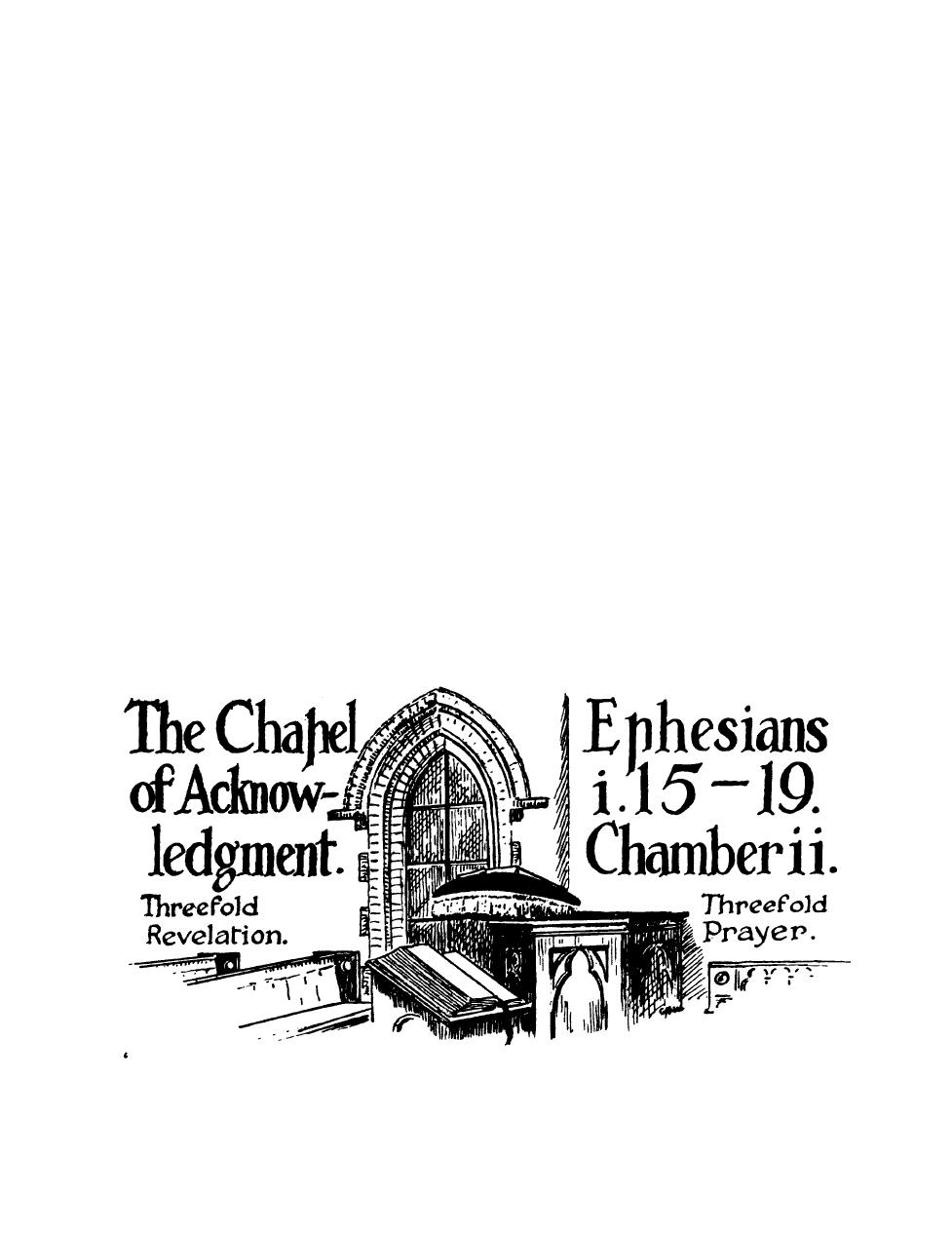
are, as verse 6 has declared, `highly favoured in the Beloved'. If this
gracious will of the Father calls forth our praise, what shall we say when we
review afresh the documents that set forth the grounds of our enfranchisement.
We were bondslaves, but we have been redeemed, released and forgiven with a
grace that overflows. In this revelation of favour, there is made known `the
secret of His will' which shows that this church thus chosen and redeemed is a
foreshadowing of the day when in the fullest sense, the Saviour shall head up
all things in Himself, in Whom we find our blessed part, being honoured as was
Aaron, not so much in being allocated an inheritance but of being taken to be
the Lord's portion, His `peculiar possession', unto which the Holy Spirit has
sealed us, and given us an earnest, in full assurance that the redemption of the
purchase shall be effectually completed. The phrase `in Whom' links these three
sections of our charter together, carrying each stage on as an outcome of the
other.
In Whom we have redemption, i.e. in the Beloved of the Father's will.
In Whom we also were taken to be an inheritance,
i.e. in Him Who is our Redeemer, and Head.
In Whom ye also were sealed with the holy spirit of promise, i.e. in Him, the
Redeemer and the Beloved.
`In Whom' each time refers to Christ. The Father's will and the Spirit's
witness focuses our adoring gaze on the Sacrifice for sin so freely offered that
we may be set free to enjoy `all spiritual blessings in heavenly places', we who
by nature were so far off as to be hopeless, Christless and Godless.
Can we wonder that we pass from the Muniment Room under the guidance of
the apostle, into the Chapel of Acknowledgment, which section, Ephesians 1:15-20
now awaits our worshipping attention.
Chamber 2
The
Three
Prayers of Ephesians
Compared
122